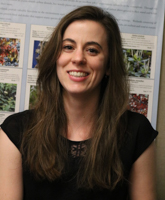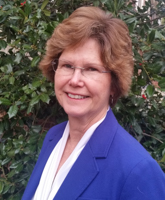
|
Roland Wall
Director, Patrick Center for Environmental Research
In the past 20 years, Roland Wall has worked in a variety of positions for the Academy of Natural Sciences. Starting as a science writer, he developed and managed the Academy’s Town Square program and led the Academy’s involvement in the Urban Sustainability Forum. In 2007 he initiated the Center for Environmental Policy, spearheading the Academy’s involvement in policy and sustainability issues. In 2012 he launched the Academy’s involvement in the William Penn Foundation’s watershed protection planning, resulting in the launch of the Delaware River Watershed Initiative. Director of the Patrick Center, he manages the Academy’s environmental research projects, including the interdisciplinary science team that monitors and supports the DRWI. He serves on the Academy’s Senior Management Committee and was part of the team that coordinated the integration with Drexel University. He is responsible for setting strategic direction of the Patrick Center as well as its day-to-day operation. He holds a B.A. in political science and an M.S. in entomology and applied ecology, both from the University of Delaware. He is an adjunct professor with the Drexel University Department of Biodiversity, Earth and Environmental Science, and a (very) part time doctoral student in the same department.
|

|
Alexis Schulman
Dolan Fellow for Innovation in Water Science
Alexis is the Dolan Fellow for Innovation in Water Science at the Academy of Natural Sciences and Assistant Research Professor in Drexel's Department of Biodiversity,Earth, and Environmental Sciences. She is an environmental planner and social scientist interested in understanding what drives green, resilient innovation in urban infrastructure, policy, and planning. Much of her work starts from the questions: Why do some communities and governments choose to embrace more sustainable practices—particularly around water management— and how do those practices become entrenched as the new status quo? Her research has focused on the adoption of green stormwater infrastructure in US cities; the use of local ecological knowledge in natural resource management science; and the promises and pitfalls of adaptive management programs. She received her PhD and MCP in Urban Studies and Planning from the Massachusetts Institute of Technology and her BSE in Environmental Engineering from Princeton University.
|

|
Kathryn Christopher
Manager, Science Communication and Outreach
Kathryn Christopher is manager of science communication and outreach at the Academy of Natural Sciences of Drexel University. She facilitates and supports meaningful communications, outreach and public engagement initiatives relating to science and human impacts. Her work centers on connecting Academy science and scientists with the public and enhancing messaging of the Academy’s positions on climate change, water, evolution, and biodiversity and extinction.
After first starting at the Academy in 2012 as a volunteer in the Botany Department, Kathryn was hired as a field technician in 2013 to support the Delaware River Watershed Initiative, and then worked as an Academy staff scientist before being named manager of science communication and outreach in 2018. She has a master’s degree in environmental science from Drexel University and a bachelor’s degree in biology from Penn State University.
|

|
Carol R. Collier, FAICP, FAWRA
Senior Advisor for Watershed Management and Policy
Carol Collier serves as senior advisor and government liaison. For the DRWI she is an Initiative Steward, works on internal strategy teams and with outside organizations and agencies to develop a holistic approach that will useful to implementors and decision makers. For 2014 – 2018 she served as Director for the Environmental Studies and Sustainability Program in the Drexel Univ. BEES Department. She served for more than 15 years as executive director of the Delaware River Basin Commission (DRBC) before joining the Academy. The DRBC is an interstate/federal commission that provides a unified approach to water resource management without regard to political boundaries. Before joining DRBC, she was executive director of Pennsylvania’s 21st Century Environment Commission and regional director of the Pennsylvania Department of Environmental Protection (PADEP) Southeast Region. Prior to PADEP, Collier served 19 years with BCM Environmental Engineers, Inc., beginning as a student intern and ultimately becoming vice president of environmental planning, science, and risk.
She has a B.A. in biology from Smith College and a Master’s in regional planning from the University of Pennsylvania. She was inducted into the College of Fellows of the American Institute of Certified Planners (FAICP) and is a Certified Senior Ecologist. In 1997 she was presented the Touchstone Award from the Society of Women Environmental Professionals and in 1998 the Woman of Distinction Award from the Philadelphia Business Journal. In 2016 the American Water Resources Association (AWRA) elected her as an AWRA Fellow and in 2007 presented her with the Mary H. Marsh Medal for exemplary contributions to the protection and wise use of the nation’s water resources. She was president of the AWRA in 2013. In 2014, the U.S. Army Corps of Engineers awarded her the Bronze Order of the DeFleury Medal and the Partnership for the Delaware Estuary presented the Delaware Estuary Jonathan Sharp Lifetime Achievement Award. In 2017 she was given the Peter Homack Award by the NJ-AWRA and the Curtin Winsor Award by the Pennsylvania Environmental Council (PEC).
She is on the Boards of the PA Chapter of The Nature Conservancy (TNC), the Conservation Council of the NJ TNC, Partnership for the Delaware Estuary, the Pinchot Institute for Conservation (Chair – 2011-2012), the Water Resources Association of the Delaware River Basin and the Fund for Fairmount Water Works. She has taught at the University of Pennsylvania and Drexel University and has published on environmental and water-related topics. She has testified before the U.S. House of Representatives and the Pennsylvania Legislature. In 2004 she was a member of a nine-person U.S./China/Japan team to assist the People’s Republic of China with river basin management. She has also participated in water management and sustainable forest practice events along the Yangtze River in China and in the rain forests of Ecuador. In 2015 and 2016 she attended the UN Climate Change Conferences, COP 21 and 22, in Paris and Marrakesh, respectively, She believes proper management of water resources is the key to our economic and environmental future.
|

|
Melanie Kovacs
Science Communication and Outreach Co-Op
Melanie Kovacs is the Science Communication and Outreach Co-Op at the Academy of Natural Sciences of Drexel University. She is a student at Drexel University working towards a Bachelor of Arts in political science with a minor in environmental studies. She was previously a volunteer at the Manalapan Township (NJ) Environmental Commission organizing events to teach community members about environmentalism. She is the director of community service for Delta Gamma Women’s Fraternity.
Melanie works on various projects with the EPPI section, such as updating website content, writing posts for the Academy’s blog, and collaborating with the Academy’s Marketing department to conduct research. She hopes to pursue a career in environmental policy and is very grateful to have the opportunity to work for the Environmental Planning, Policy, and Innovation Section at the Academy!
|